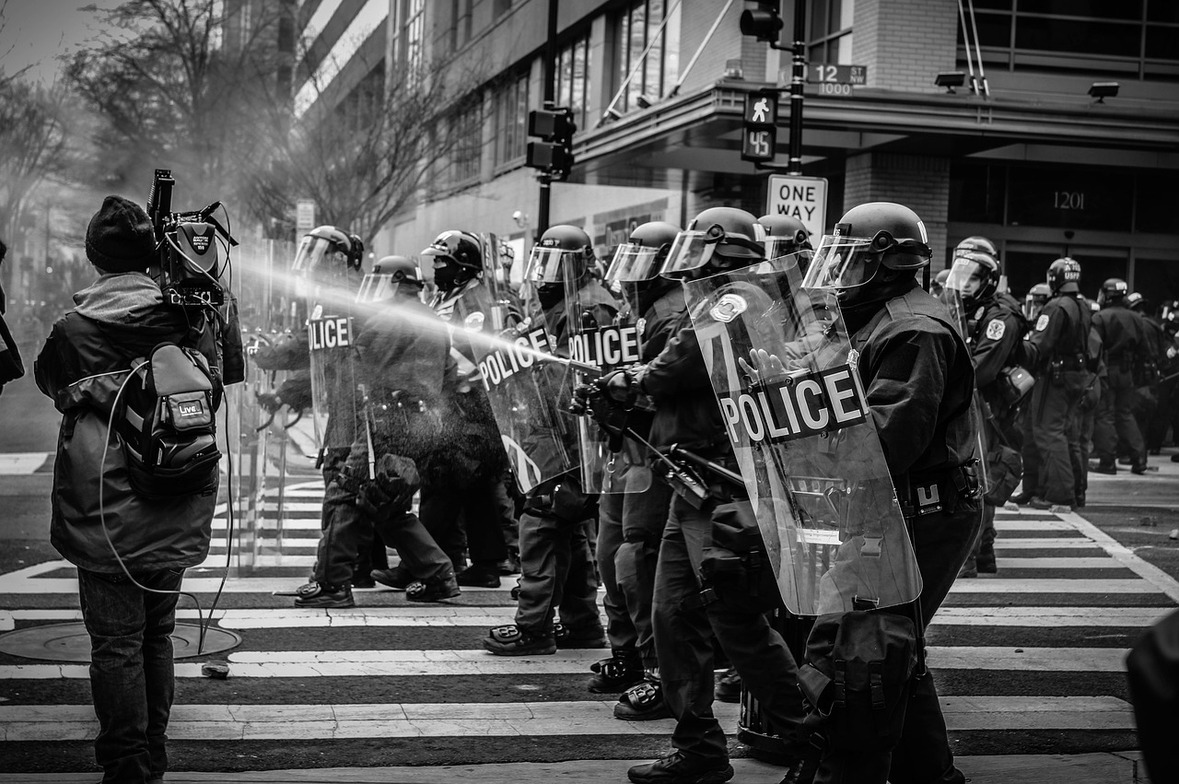
At the height of the protests over the US’s involvement in the war in Vietnam, a slogan emerged among those who were offended by the hippies and yippies who were calling out our nation for its injustice and needless violence. That slogan was, “My country, right or wrong.” A similar slogan—“If you don’t love it, leave it”—can be found in a song by Merle Haggard from that period: “If you don’t love it, leave it. / Let this song that I’m singing be a warning: / if you’re runnin’ down our country, man, / you’re walking on the fightin’ side of me.” True patriots, these slogans assumed, did not question the motives or actions of our country’s leaders or take issue with our country’s policies. True patriots waved the flag and went along.
The prophet Jeremiah knew about this kind of patriotism. It almost got him killed. In Jeremiah 26 he got arrested for preaching against the policies of the kingdom of Judah. He stood in the court of the temple and took the people and especially the leaders to task for their idolatry and injustice. He concluded by saying that if they did not change their ways, God was ready to “make this house like Shiloh, and … make this city a curse for all the nations of the earth” (v. 6). Shiloh was an earlier site of the tabernacle of God that had been devastated because of the people’s disobedience and idolatry.
Jeremiah was immediately seized and threatened with death “because he has prophesied against this city” (v. 11). In his defense, the prophet declared that it was indeed God who had sent him to preach this message of doom, and he doubled down, calling on the people and officials to “amend your ways and your doings, and obey the voice of the Lord your God” (v. 13). He also warned them that “if you put me to death, you will be bringing innocent blood upon yourselves and upon this city and its inhabitants, for in truth the Lord sent me to you to speak all these words in your ears” (v. 15).
Jeremiah escaped death on this occasion, but the threat was very real. He was just as vulnerable as the minister who was recently pepper-sprayed trying to prevent ICE agents from making an arrest at his church, or the pastor who was shot in the head with a pepper ball at a different ICE protest in Chicago. We are seeing in the US today a situation similar to Jeremiah’s time, in that the my-country-right-or-wrong crowd wants to set the rules for what can and cannot be said. Factions in our country want to tell us what books we can and cannot read. They want to whitewash our history to eliminate any evidence that we are now or ever have been less than perfect in our dealings with our own people or the rest of the world. Whole swaths of our history get swept under the rug when we try, for example, to eliminate the commemoration of Indigenous People’s Day and characterize Christopher Columbus as some kind of American hero.
What would Jeremiah say to this kind of revisionist history? He is famous for having on another occasion challenged the people’s assumption that they were safe simply by virtue of the presence of God’s temple in their midst. The leaders and people of Judah were saying, “We have the temple of the Lord, so we are secure in God’s good favor,” but Jeremiah warned them that obedience and justice were still necessary. We in America like to think of ourselves as a shining city on a hill, but we need also to remember that obedience and justice are necessary. And sometimes, for obedience and justice to come to the fore, repentance is also necessary.
Let us in the church lead by example. Let us humble ourselves, admit our faults, and repent. Let us practice obedience and justice in our corporate life together as well as in our individual lives. Let us put no credence in the slogan, “My country, right or wrong,” but let us rather strive to make our country resemble the city on a hill we all wish for it to be.

